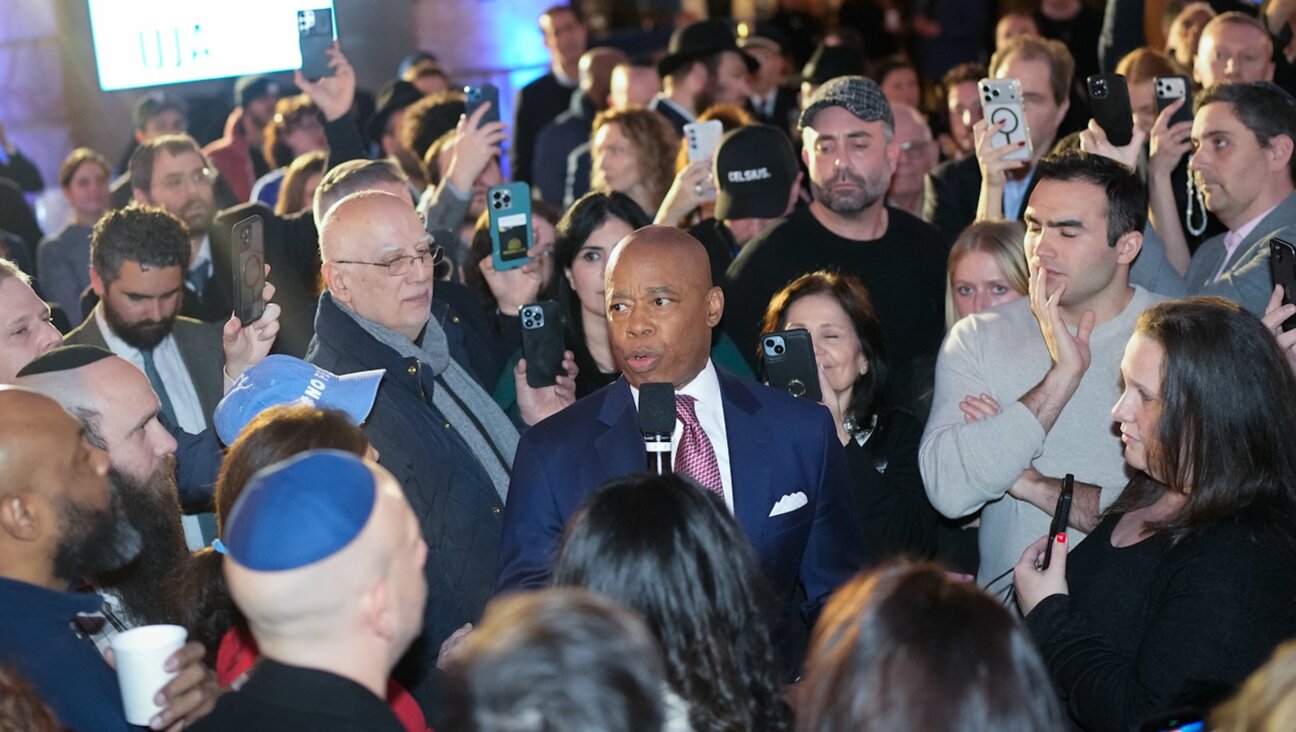Will Maslow, 99, Pioneer in Fight for Civil Rights
Will Maslow, a prominent civil rights attorney who once served as executive director of the American Jewish Congress, died February 23 at his home in Manhattan. He was 99.
In an era when the Jewish community relied on largely quiet, nonconfrontational tactics in the fight against discrimination, Maslow was a pioneer in the use of the law as a tool in the struggle for equality. “He was one of the people who helped shape [the strategy of] law as an instrument of social change,” Marc Stern, assistant executive director of the AJCongress, told the Forward.
Maslow joined the AJCongress in 1945. As a young lawyer, he helped create the organization’s Commission on Law and Social Action, modeled on the American Civil Liberties Union and on the National Association for the Advancement of Colored People. In this capacity, he brought suits against Columbia University — his alma mater — to challenge its discriminatory admissions quotas, and against New York’s Stuyvesant Town Housing Company to fight its racist housing policies. In 1960 he led the fight against the Arab boycott of Israel; he co-authored America’s Anti-Boycott Law, barring American firms from participating in the boycott. He was named executive director of the AJCongress in 1960, a post he held until 1972. Maslow remained at the organization as general council until the 1980s.
“There were very sharp battles fought [in the Jewish community] over whether one should engage in legal efforts, or one should attempt to persuade the larger society, [using] ‘brotherhood weeks,’ and meetings and discussions and programs,” Stern told the Forward. “Will was the early leader in the Jewish community who said, ‘No,we need to force the issue, by use of law’.”
Born in Kiev in 1907, Maslow moved to the United States in 1911 and was raised in Chicago. He attended Cornell University and then Columbia Law School, at a time when the school’s admissions quotas limited the number of Jewish students.
After working as a trial attorney at the National Labor Relations Board, Maslow was appointed by President Franklin Delano Roosevelt in 1943 to be the field director of his Fair Employment Practices Committee, a group that had been created at the behest of black union leader A. Philip Randolph. Maslow filed a friend-of-the-court brief in the landmark Brown v. Board of Education ruling, which desegregated American schools, and in 1963 he was one of only seven members of the administrative team that organized the historic March on Washington, at which Martin Luther King Jr. delivered his “I Have a Dream” speech. “He forged alliances with groups like the ACLU on the theory that, at least with regard to civil rights, Jewish interests would be advanced in tandem with the general interest,” Stern said..
















